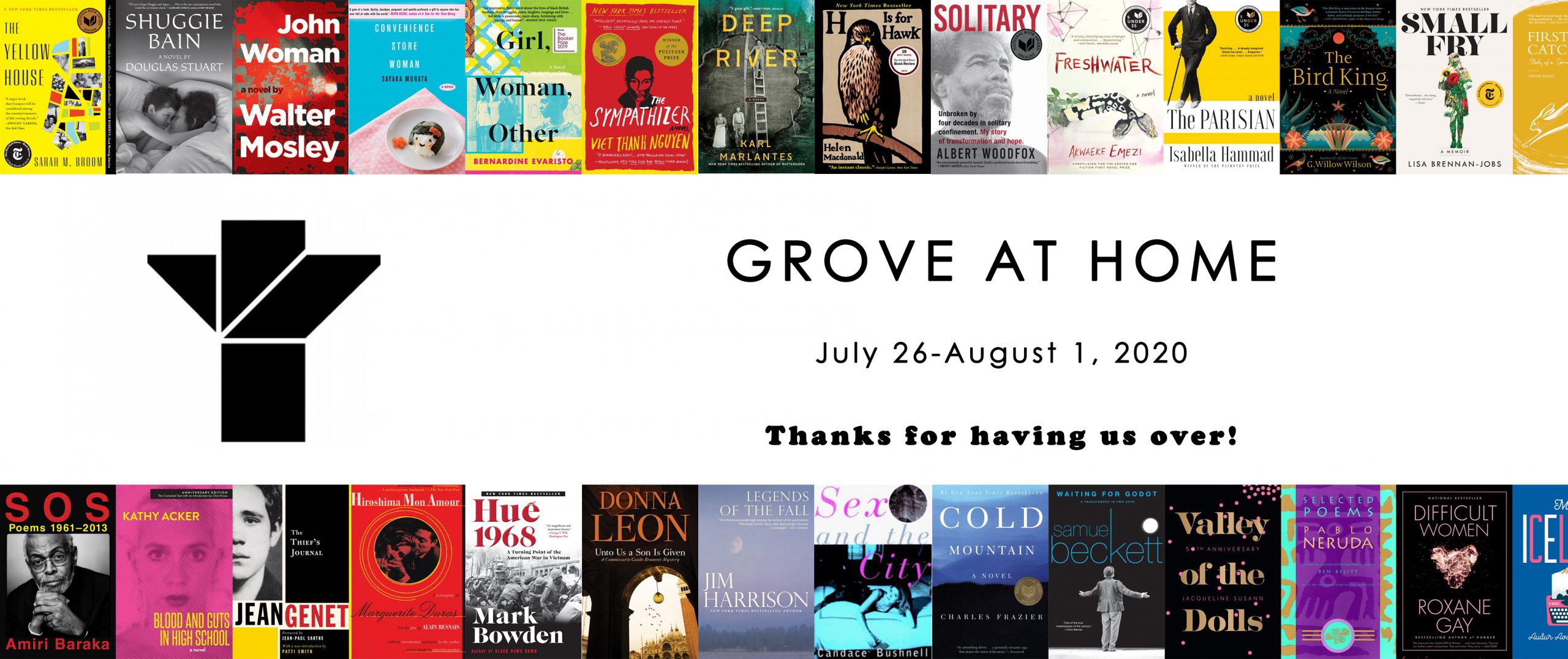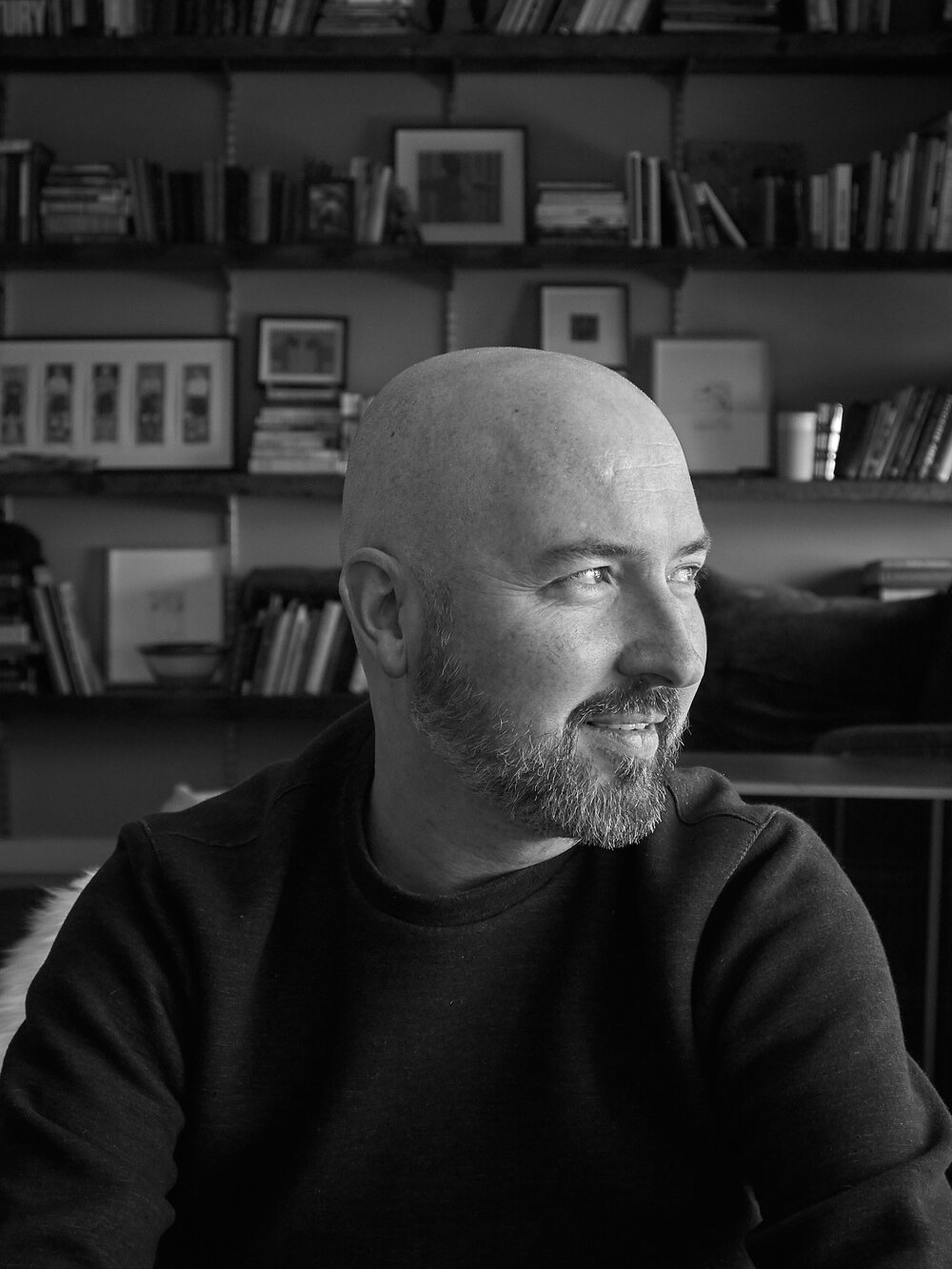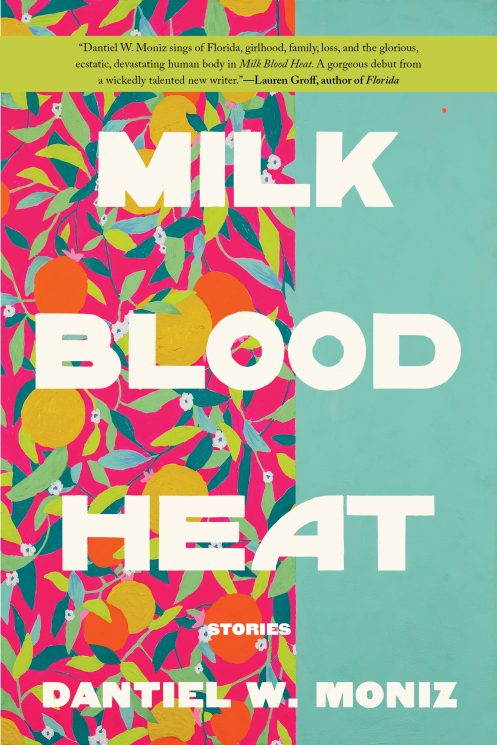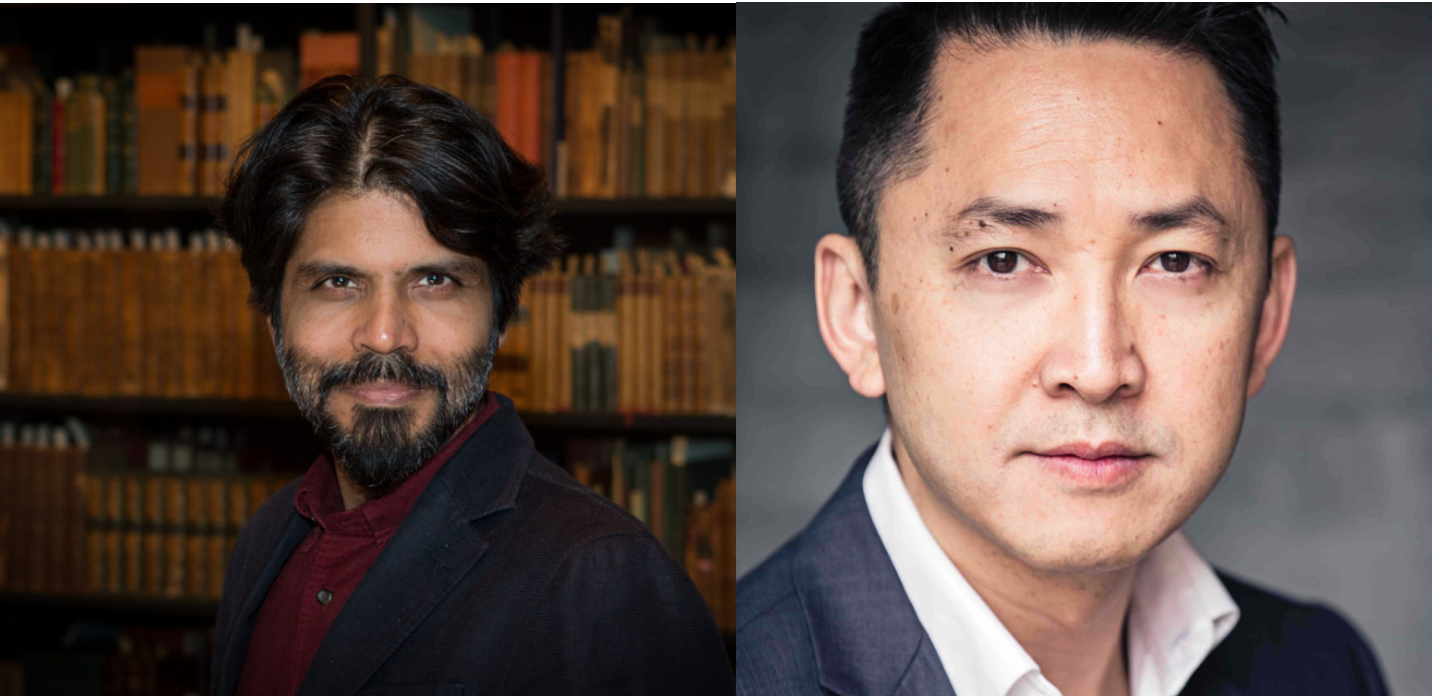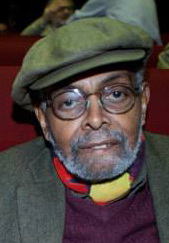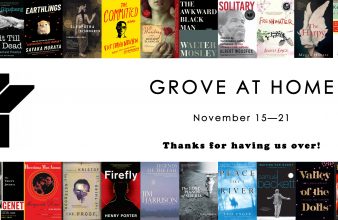News Room
Welcome to Grove at Home!
Every weekday, from now until we’re all out of the house again, we’ll be sharing a couple of links — some fresh, some from the vault — to say hi, remind you to keep reading, and let you know what’s on our minds.
Friday, July 31
Explore the worlds of Ursula K. Le Guin
By the time of her passing in early 2018, Ursula K. Le Guin had become one of the most admired, beloved, and — not least of all — widely read authors in the world. It’s hard to think of more prolific writer, or one who succeeded across more genres and styles: Le Guin wrote several-tome sci-fi sagas, poetry, songs, short stories, and kids’ books; she was an authority not only on the vivid and enduring worlds she created, but also on the art of writing, the world of publishing, and the troubled, troubling world in which we live. Her life and legacy are the focus of a recent episode of PBS’s “American Masters,” available online through August 30. Watch it right here:
“Found Wanting” by Douglas Stuart
As we continue processing the incredible news that Douglas Stuart’s debut novel, Shuggie Bain, has been longlisted for the Booker Prize, it’s hard not to reflect on his career as a writer — to which we’ve had front row seats, as it were. The word “meteoric” is used all too often in publishing copy, but it’s wild to consider that Douglas published his first-ever piece of fiction earlier this year, and wilder still to consider that the venue for his debut publication was the New Yorker. Re-reading it today, the story, “Found Wanting,” is as rich and moving as ever.
“I was ashamed of my glasses. They were the cheapest of government-subsidized framed, the type that poor pensioners wore, or middle-class students, when they wanted to appear ironic. The lenses were so thick that my green eyes looked jaundiced and only half the size they actually were. I never wore them when I should have. So I can’t quite picture the Solicitor’s face, but his car was black and German. It glided through the Glasgow smirr like a starling.” Continue reading…
“You’re making this kind of collage of beauty or success or making failure beautiful”: Eileen Myles in Denmark
“You reconstruct your wholeness, and then the cracks mean it’s real.” If that’s not a searing, inspired description of what it means to make art… what is? Three years ago, the incredible Eileen Myles — whose status as one of America’s foremost poets is, at this point, beyond dispute — traveled to Humlebæk, Denmark, for a conversation with Norwegian author Linn Ullmann at the Louisiana Museum of Modern Art. This week, the museum has uploaded it to Youtube, and it’s a marvel: Myles is their usual trenchant, witty, inspiring self, covering a range of topics from the meaning of art to watching Cherry Jones play a character based on them on Transparent. Simply wonderful.
Thursday, July 30
Kelli Jo Ford brings Crooked Hallelujah to the Boswell Book Company
Earlier this week, Kelli Jo Ford, author of Crooked Hallelujah, appeared via Zoom in conversation with Daniel Goldin, of Milwaukee’s Boswell Book Company, to discuss her book — already, two weeks after its release, an Indies Introduce, LibraryReads, and Indie Next pick, as well as a New York Times Editors’ Choice. Their conversation is far wider, though — besides the book itself, they discuss the nature of place in fiction, the Supreme Court’s recent McGirt v. Oklahoma decision, Ford’s own background, and much more. Watch it:
Dantiel W. Moniz talks about the cover of her forthcoming Milk Blood Heat
Put it on your long-range radar now: this winter, we’ll be publishing Milk Blood Heat, the debut story collection from Dantiel W. Moniz, which is already being hailed by the likes of Lauren Groff (“gorgeous”), Jamel Brinkley (“incredible range and sensitivity”), and T. Kira Madden (“incandescent and seething”). The book’s still a ways off, but Moniz recently spoke to the Kenyon Review about one of the first aspects of the book to be made widely public: its cover. The piece, which also looks at the covers of five other exciting debuts in the offing, is worth your time.
“When I saw it, I felt a frisson go through me. I quickly scrolled through the rest of the images and came back to the first and started screaming. Only then did I realize that what I had felt was certainty that the first design was my cover. It was such a pure moment of joy.” Continue reading…
Today’s the birthday of author Paul Dickson, and we’re wishing him the very best! Since we can’t exactly stop by with a cake, we’re doing the next best thing: simulating Paul’s presence by watching this excellent video, captured earlier in the week, of Paul discussing his acclaimed newest book, The Rise of the G.I. Army, 1940-1941, with the historical society of Frederick County, Maryland, Heritage Frederick. How did the United States go from a state of extreme military unpreparedness as World War II began crackling across Europe to an army 1.4 million strong by the bombing of Pearl Harbor? Paul’s not just the birthday boy: he’s an authority on this subject, and it’s a pleasure to hear him talk it through.
Wednesday, July 29
The Booker longlist is here!
If you were anywhere near the literary internet yesterday, you probably heard tell that the longlist for the 2020 Booker Prize has been announced. Needless to say, we were fantastically excited to see Douglas Stuart’s debut Shuggie Bain included, in company that can only be described as magnificent. In this short video, the Booker judges discuss deliberations over this year’s prize, and the unmistakably excellent list they produced. Keep your eyes peeled for a glorious shot of Shuggie’s UK cover.
Viet Thanh Nguyen and Pankaj Mishra on free speech
Last week in the Guardian, the brilliant Viet Thanh Nguyen and the brilliant Mankaj Mishra sat down for a conversation about free speech that turned out to be, well, brilliant. Covering subjects that included the recent Harper’s letter, the political polarity of academia, the future of Alexandria Ocasio-Cortez, and much more, it finds two dynamic, heterodox thinkers taking on some of the thorniest — and most urgent — question arising from present discourse.
“What someone like Ocasio-Cortez or Black Lives Matter represents is the faint hope that the US can save itself from its contradictions. You have cited James Baldwin as a figure who called for an American reckoning with its fatal histories of conquest, war, genocide and slavery.
“Not reckoning with these tragedies has, in your argument, left the UK and the US victims of their own ruthless winner-take-all forms of individual capitalism.” Continue reading…
Douglas Stuart addresses seeing himself on the Booker longlist
How does Douglas Stuart feel about seeing his name on the longlist for the Booker Prize? And how did he, amid the lockdown, manage to celebrate? In this clip, which finds Douglas setting a new record for charm and concision, he talks about the news with BBC Scotland’s “The Nine.” Here’s hoping that frozen pizza was delicious, Douglas.
“It was not in my wildest dreams”
Scottish Author @Doug_D_Stuart reflects on his debut novel, Shuggie Bain, being long-listed for the Booker Prize. #TheNine pic.twitter.com/9BCVafU1bO
— The Nine (@BBCScotNine) July 28, 2020
Tuesday, July 28
“I knew how terrible it felt”: Douglas Stuart on Shuggie Bain
This spring, while readers watched in horror as book events and author tours all around the world were canceled, some enterprising souls worked to bring ensure we could watch conversations with our favorite authors all the same. Today, in celebration of the profoundly excellent news that his debut novel Shuggie Bain has been longlisted for the Booker Prize, we’re delighted to be re-watching this moving and charming interview Douglas Stuart gave to Literary Hub. Literature, the impacts and legacies of Thatcherism, and life as the queer son of a mother struggling with addiction are among the subjects rivetingly discussed. Fans of a good brogue will be especially gratified.
The Ambitious Heft of a Modern Epic: On Amiri Baraka’s Somebody Blew Up America
In a long career lively with controversies, perhaps the biggest controversy Amiri Baraka found himself at the center of concerned his post-9/11 poem “Somebody Blew Up America” — which, among other things, was accused of antisemitism, and led the government of New Jersey, on learning that it would be unable to formally remove Baraka from his role as the state’s poet laureate, to abolish the post altogether. In an excerpt from his new book published at Literary Hub, poet and critic Michael Leong looks closely at the poem and some of the responses it engendered.
“The expansive historical and geographical scope of Amiri Baraka’s 243-line poem ‘Somebody Blew Up America’—which ranges from biblical times to the Bush administration, from colonial America to the Belgian Congo—lends it the ambitious heft of a modern epic. In fact, I read ‘Somebody Blew Up America’ as an extension, a sequel, to his book-length poem Wise, Why’s, Y’s (1995), which Baraka calls ‘an ongoing-offcoming Tale’ of the tribe in the tradition of the African griots as well as the American modernists Melvin Tolson, William Carlos Williams, Langston Hughes, and Charles Olson.” Continue reading…
Happy 133rd, Marcel Duchamp!
Today makes the 133rd anniversary of the birth of Marcel Duchamp, one of the twentieth century’s most influential and admired artists, and one of the key subjects of Ruth Brandon’s Surreal Lives. In one powerful passage early in the book, Brandon looks to Duchamp’s young development as an artist, focusing on his time in Munich in 1912:
“One thing he undoubtedly did do was draw and paint — he produced several of his most important works during this brief but intensely productive period. But he was nevertheless adamant that he no longer wanted to be an artiste-peintre. He liked to quote the French saying ‘Bête comme un peintre’ (As stupid as a painter). This was what Marcel Duchamp was not going to be. Since the Renaissance, the assumption had been that an artist was both craftsman and intellectual. By the time Duchamp returned from Munich, he had separated out these strands. The debacle of his rejection had confirmed his growing distaste for the actual process of putting paint on canvas. He had never, he declared later, enjoyed this in itself. Craftsmanship no longer interested him. What concerned him now was what went on in the mind, ‘intellectual expression rather than animal expression’. For the rest of his life, making would be less important to him than thinking.”
With this in mind, it’s fascinating to watch this footage of Duchamp from nearly half a century later, speaking at the Philadelphia Museum of art in 1956.
Monday, July 27
H is for Helen Macdonald and Robin Wall Kimmerer
Last week, the Heartland Fall Forum hosted a conversation between of the most esteemed writers on the natural world working today. Robin Wall Kimmerer, author of Braiding Sweetgrass (published by our colleagues at Milkweed Editions), spoke with Helen Macdonald, author of H is for Hawk and Vesper Flights, a new collection of essays at the boundary between human and animal experience, from the birds that live atop the Empire State Building to the challenges of farming ostriches. Vesper Flights will be out next month — you can find links to pre-order it here.
For Robin and Helen’s conversation — which includes subjects as varied as as the tendency for gloriously beautiful summers to fall amid period of human crisis, the mysteries of essay-writing, the astonishing avian behavior from which Vesper Flights takes its title, and much more — click right here or on the photo below. (You’ll be asked to register to watch the event — registration is free and open to everybody.)
Re-examining the Vietnam War novel
This spring marked the forty-fifth anniversary of the end of the Vietnam War — a conflict that continues to loom large in how we think of world politics in the second of the twentieth century, and whose outsize, formative influence on the awareness of the generations that endured it continues to make itself known. In a powerful essay at The New Republic, author and veteran Matt Gallagher examines the legacy of that war in literature, considering, among others, two very different Pulitzer Prize-winning novelists whose lives were powerfully shaped by that war: Robert Olen Butler and Viet Thanh Nguyen.
“Perhaps broader America was ready to move on from the war, but many of its participants and chroniclers were not. ‘All wars are fought twice,’ Vietnamese-American novelist Viet Thanh Nguyen would write decades later. ‘The first time on the battlefield, the second time in memory.’” Continue reading…
A conversation with the team behind Pass Over
Antoinette Nwandu’s play Pass Over could hardly be more timely — with the dizzying energy of a collision between the Biblical book of Exodus and Beckett’s Waiting for Godot, it’s also a lyrical visitation with two young Black men as they question, in dialogue charged with the force of poetry, truths about race, freedom, time, and much more. In this interview, filmed while the play was in performance at the Lincoln Square Theater, Nwandu opens up about the contradictions between Biblical assurances about arriving in a Promised Land and Godot’s seemingly antithetical promise that no one, in fact, is coming — and, joined by director Danya Taymor and actor Namir Smallwood, about a whole lot more.
